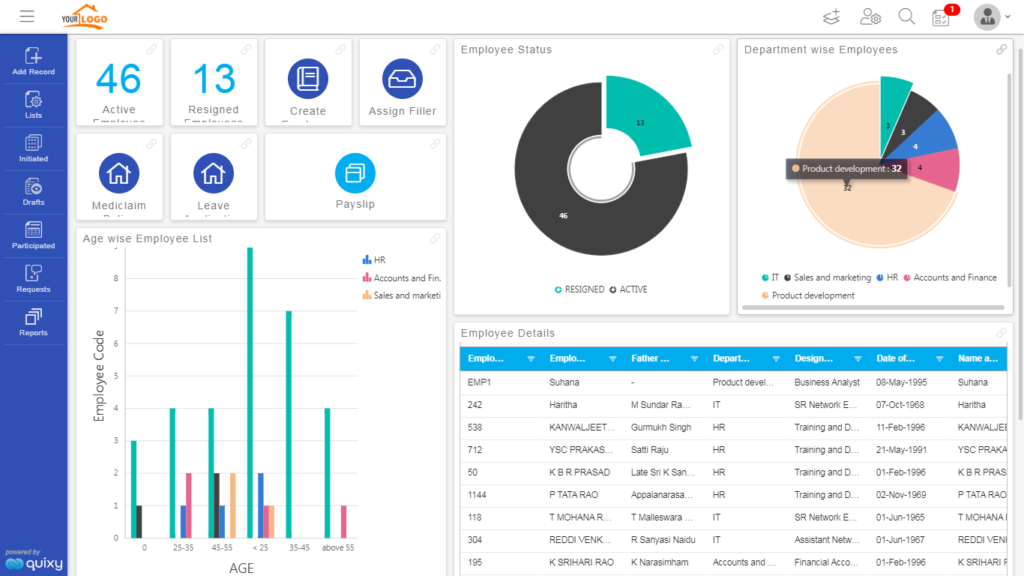Simplify Open System Database Development with No-Code Advancement Platforms
Discovering the Advantages of Scalable Databases That Call For No Coding Skills for Efficient Information Management Solutions
The emergence of scalable databases that get rid of the requirement for coding abilities offers a transformative chance for organizations seeking efficient data administration services. By making it possible for non-technical users to harness the power of information through user-friendly interfaces, these systems improve availability and foster cooperation throughout diverse teams. Furthermore, their cost-effectiveness and adaptability to developing organization demands can significantly enhance functional processes. As we think about the implications of such advancements, it ends up being essential to check out exactly how they can improve the landscape of data administration and drive sustainable growth in an affordable environment.
Enhanced Access for Individuals
Improved accessibility for users is a vital aspect of scalable databases, making sure that data administration systems are easy to use and instinctive. In an age where data-driven decisions are extremely important, accessibility permits a bigger variety of users, including those without considerable technological experience, to engage with data source systems successfully. This democratization of information access promotes enhanced partnership across divisions, encouraging staff members to remove insights and make notified choices.
Easy to use user interfaces, such as drag-and-drop functions and aesthetic information representation, simplify complex information communications. These improvements reduce the understanding curve related to traditional database management, enabling users to concentrate on leveraging data rather than facing technical complexities. In addition, scalable databases frequently integrate real-time analytics and personalized dashboards, giving users with prompt insights customized to their certain needs.

Cost-Effectiveness and Source Cost Savings
Effective information monitoring not only pivots on accessibility but also on cost-effectiveness and source financial savings. Scalable databases designed for individuals without coding abilities considerably lower monetary burdens normally connected with traditional data source monitoring systems. By eliminating the demand for specialized shows proficiency, organizations can assign their sources more efficiently, concentrating funds on core business tasks instead than considerable training or hiring experienced workers.
In addition, these data sources often use cloud-based services, which additionally minimize expenses connected to equipment and maintenance. Organizations can scale their database solutions according to their requirements, staying clear of the costs sustained from over-provisioning sources. This adaptability implies organizations can adjust to altering needs without sustaining unneeded expenses, resulting in considerable long-term cost savings.
Additionally, easy to use interfaces simplify data entry and monitoring procedures, minimizing the time invested on management tasks. This performance converts into labor expense savings, enabling teams to concentrate on critical efforts instead than routine maintenance. Generally, embracing scalable data sources that call for no coding abilities cultivates a much more affordable approach to information monitoring, making it possible for companies to maximize see this site their resources while preserving high levels of operational performance.
Improved Cooperation Throughout Teams

Moreover, scalable data sources help with smooth communication amongst staff member. With user-friendly interfaces that need no coding abilities, workers can conveniently produce, modify, and share reports or control panels tailored to their specific needs. This democratization of data equips non-technical customers to contribute understandings, improving the joint environment.
In addition, these data sources sustain simultaneous gain access to, permitting numerous users to work with the very same dataset at the same time. This feature boosts productivity, as teams can participate in joint information evaluation without the risk of variation control concerns. The capability to leave remarks or notes straight within the data source additionally advertises discussion and makes clear data analyses.
Streamlined Data Management Processes
In today's data-driven atmosphere, companies identify the necessity of streamlined information monitoring processes to optimize efficiency and accuracy. By leveraging scalable databases that require no coding skills, businesses can streamline their information handling and reduce the complexities normally connected with conventional data source systems. This accessibility equips non-technical individuals to involve directly with information, facilitating quicker decision-making and minimizing reliance on specialized IT employees.
Streamlined data management procedures boost workflow by automating routine jobs such as data access, recognition, and coverage. Automated information integration makes sure that info from numerous sources is accumulated perfectly, eliminating silos and fostering a linked sight of crucial business metrics (no-code). Furthermore, straightforward interfaces enable personnel Visit This Link to adjust information easily, enabling them to generate insights that drive calculated initiatives without the requirement for extensive training.
This efficiency not only speeds up functional processes but additionally reduces the potential for human error, making certain that data stays reputable and exact. Ultimately, streamlined information management procedures via scalable databases result in boosted efficiency, allowing organizations to concentrate on core activities while ensuring that their data administration practices are efficient and effective.
Scalability for Expanding Services

For expanding ventures, the ability to scale up or down is vital. A scalable data source can handle an influx of information produced from brand-new consumers, products, or solutions, ensuring that business operations remain nonstop. These databases offer the capacity to handle peak lots effectively, which is essential during periods of quick development or seasonal spikes.
Furthermore, numerous scalable data source services are designed with user-friendly interfaces that call for no coding skills, empowering non-technical team to handle data properly (no-code). This democratization of information monitoring allows organizations to allocate resources purposefully and minimize dependence on specialized IT workers
Ultimately, taking on a scalable database not just boosts operational efficiency however also cultivates a setting where services can innovate and advance without the constraints of traditional data source systems. This flexibility placements companies for long-lasting success in today's competitive landscape.
Conclusion
In conclusion, scalable data sources that require no coding abilities provide significant benefits for reliable data administration. By simplifying information management procedures and using scalability for expanding services, such remedies make it possible for companies to adapt to transforming needs efficiently.
Enhanced ease of access for users is a crucial facet of scalable data sources, guaranteeing that data administration systems are instinctive and user-friendly.User-friendly user interfaces, such as visual data and drag-and-drop attributes representation, simplify intricate information communications. Overall, adopting scalable data sources that need no coding skills promotes a more affordable strategy to data management, enabling organizations to maximize their resources while maintaining high levels of functional effectiveness.
By leveraging scalable databases that require no coding abilities, organizations can streamline their data handling and decrease the complexities usually connected with traditional data source systems - no-code.Structured information management processes improve workflow by automating routine tasks such as data access, recognition, and coverage